-
•
•
2 responses
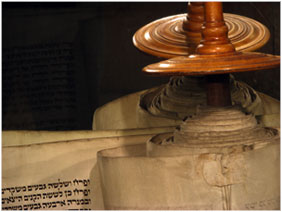
A different idea of history What I say here about the Old Testament will be brief, so brief in fact as to be a caricature. Those who are specialists in biblical studies, are likely to find this woefully inadequate. I plead mea culpa in advance. In spite of that, I think this will do as a brief introduction for lay people like myself. Latter-day Saints believe that, for the most part, the scriptures are literal histories of different groups of God’s people. The word “literal” means “by the letter.” So, when we say that the scriptures are literally true, we… Read More
-
•
•
Abraham 3 Verses 1-19: Why did the Lord reveal these things to Abraham? More important: why did he think it important to reveal them to us? Verse 1: Why is it important that Abraham tell us that he received the revelation that follows through the Urim and Thummim? Verse 2: Assuming that the throne of God is on a planet, why say that the star is near that throne / planet rather than that the throne / planet is near the star? In contrast, we don’t say that the sun is near the earth, but that the earth is near… Read More
-
•
•
7 responses
A new century dawns upon the world today. The hundred years just completed were the most momentous in the history of man upon this planet. It would be impossible in a hundred days to make even a brief summary of the notable events, the marvelous developments, the grand achievements, and the beneficial inventions and discoveries, which mark the progress of the ten decades now left behind in the ceaseless march of humanity. The very mention of the nineteenth century suggests advancement, improvement, liberty, and light. Happy are we to have lived amidst its wonders and shared in the riches of… Read More
-
•
•
25 responses
There’s an interesting article by Peggy Fletcher Stack about some of the changes in the revised _Gospel Principles_ manual. Among other things, references to _Mormon Doctrine_ have been removed. T&S’s Julie Smith asks some good questions — “Over the years, I’ve heard many, many people express that the Teachings of the Prophets books were very difficult to teach from, so I’m sensing some relief with the shift to the new manuals,” says Julie M. Smith, a stay-at-home mom with a degree in biblical studies. “At the same time, there is a new concern: How does a teacher make a lesson… Read More
-
•
•
131 responses
This post opens the voting for Mormon of the Year. Votes will be taken until midnight Eastern Time on Thursday, January 7th, at which time the voting will close. The voting mechanism will attempt to restrict votes to one per person. The order of the choices is set at random, and is different each time the form is presented. THE WINNER OF THE ONLINE VOTE IS NOT NECESSARILY THE MORMON OF THE YEAR!!! Read More
-
•
•
16 responses
Following up on Kaimi’s post concerning “It Came Upon a Midnight Clear,” I thought we ought to take the opportunity to read over the full text of Lord Tennyson’s “Ring Out Wild Bells,” another frequently sung hymn whose lines concerning injustice, social inequity, political divisiveness, and faith we never sing! Read More
-
•
•
4 responses
December, like childhood, is an opportunity for us to experience an enchanted world, and regain some of the understanding we too quickly lose – and often anxiously jettison – after childhood. Read More
-
•
•
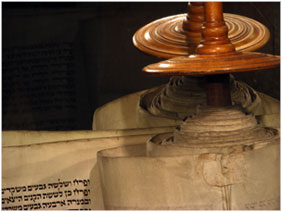
As the title of this post says, these are notes for studying the lesson rather than for teaching it, though presumably one who studies the lesson will have material from which to teach it. Read More
-
•
•
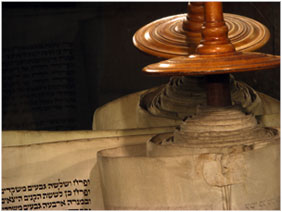
What are the scriptures for? How should we use them? How do we use them? “Proof-texting” is a procedure that begins by assuming we know the doctrines and then searches through the scriptures to find something to back up the belief. Because it begins with what we assume we know rather from what the scriptures teach, proof-texting always runs the danger of “wresting” the scriptures. Jesus accuses the Jews of wresting the scriptures by proof-texting in John 5:39. See also 2 Peter 3:16, Alma 13:20, and D&C 10:63. “Wrest” is the word from which the modern word “wrestle” comes, and… Read More
-
•
•
Don’t expect Old Testament writers to have written their histories the way we would have written them. Read More
-
•
•
53 responses
It appears that several church programs are changing in 2010. Read More
-
•
•
2 responses
We’re very lucky to have had Eric blogging with us for the past few weeks. Thank you, Eric! Read More
-
•
•

The version of the Old Testament used by Protestants and Jews today contains 39 books. Catholic Bibles include 9 more books, as well as 2 additions to Daniel and 1 to Esther. At least some of those 9 additional books were used as scripture by Saints of the 1st century AD. For various reasons (mostly historical rather than doctrinal or revealed, I would guess) Latter-day Saints use the same version of the Bible as do the Protestants. The major difference between the Protestant and Jewish Bibles is that the order of the books in each is different. The Protestants arrange… Read More
-
•
•
It is daunting to be posting anything about scripture when Eric Huntsman is posting alongside. It ought to be daunting in any case, but it is easier to ignore the fact that I am a mere dabbler when my posts stand alone. In any case, I will be posting revised versions of my study questions for the Old Testament Sunday School lessons. I begin with several posts of background. These will all be cross-posted from Feast Upon the Word, a site you should become acquainted with if you aren’t already (and it is the blog daughter of its more important… Read More
-
•
•
44 responses
At least, that’s what’s alleged in this interview with UCSB professor Jacqueline Stevens: Read More
-
•
•
119 responses
Its that time of year again. The media are already reviewing the important news stories of the year, Time has selected its Person of the Year; so we should get busy selecting the Mormon of the Year. For those who don’t remember, last year at this time T&S selected Mitt Romney as the Mormon of the Year for 2008. I think the ground rules are basically the same as last year (suggestions about changes to the rules are welcome – I’ve tried here to clarify some assumptions we made in the rules last year): Nominees must be Mormon somehow — those… Read More
-
•
•
4 responses
[Once again, these are just notes, and they do not even begin to do the subject justice, but yesterday’s Matthew notes were able to spark some good discussion. I will response and comment as I can today, but, hey, it is Christmas Eve Day!] While Matthew’s is largely from Joseph’s perspective, Luke’s from Mary’s This does not mean, however, that Joseph and Mary were necessarily the sources—rather that the evangelists focused on them and what they represented Luke included poetic passages or songs to personalize the characters of his infancy narrative (canticles, more below) Luke adds the stories about John… Read More
-
•
•
8 responses
[Christmas realities have hit, making me admit that full length blogs the last two days of Christmas week are just not feasible! So forgive me as I just post here some “notes” on Matt and later Luke, consisting of largely recycled material from my class lectures!] Matthew’s is largely from Joseph’s perspective, Luke’s from Mary’s This does not mean, however, that Joseph and Mary were necessarily the sources—rather that the evangelists focused on them and what they represented For Matt, Joseph’s proposed status as a Davidid makes Jesus David’s true heir, although admittedly through “adoption” or legal recognition by Joseph,… Read More
-
•
•
22 responses
There’s so much here I don’t even know where to begin: Read More
-
•
•
20 responses
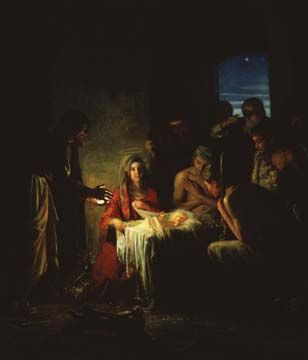
This Christmas Eve, most of us will at least read the “Christmas Story,” as found in Luke 2:1-20. As we approach the holiday, a few more diligent souls will read all of the Infancy Narratives, as found in Matt 1-2 AND Luke 1-2. Yet even when reading (as opposed to just remembering or “thinking” about) these familiar texts, the tendency will be to harmonize the two accounts, resulting in a hybrid vision of the birth of Jesus that accords nicely with the Christmas pageants that we will watch and the Nativity scenes that we have set up. But our Christmas… Read More
-
•
•
19 responses

In April of 2008, our son Samuel was diagnosed with autism . . . But in this Christmas week, I wanted to share some specific experiences that we have had with our special needs child, first the challenges that the holiday posed and then the wonderful blessings that we have experienced together as a family. . . . As we celebrate the birth of our Lord together, the spirit is not only filling my home, it is reaching my precious son in ways that I pray will make an indelible mark on his memory and soul. Read More
-
•
•
7 responses
The text “It Came Upon the Midnight Clear,” written by Unitarian minister Edward Sears, included haunting verses about war and social inequity. Nowadays, there are several versions of the hymn, as different denominations (including the LDS church) have altered the words in one form or other. The original words remain well worth reading (and singing) this Christmas season: Read More
-
•
•
26 responses
There’s hope! At least that’s the message of a couple of posts I read through lately (here and here) presenting an interview with Adam McHugh, the author of Introverts in the Church: Finding Our Place in an Extroverted Culture. By “Church” he means Evangelicals, not the LDS Church, but the discussion is still relevant to us. Read More
-
•
•
20 responses
A recent spoof on Conan O’Brien that has made the rounds on the Internet highlights how little many outside the Church know about LDS practices. The hilarious skit, ostensibly in honor of a “Mormon Christmas,” points out that we really do not have many LDS-specific holiday traditions, at least not many that anyone can readily point to. There are ward Christmas programs a week or two before Christmas. There is the First Presidency Christmas Devotional at the beginning of December. And, as I wrote yesterday, for those in Utah, or perhaps farther afield thanks to PBS, there is the Mormon… Read More
-
•
•
17 responses
This year, Simon turned eleven, Nathan turned eight, Truman turned five, and Julie turned old. Read More
-
•
•
14 responses

or, an untraditional Mormon couple in traditional clothes. After the ceremony while I was walking through the temple halls, people were coming out from all over the place to gawk at my dress. I think most of them had never seen formal Vietnamese wedding regalia before. What’s funny is that the Vietnamese traditional dress (ao dai), seems, to me, to be more suited for the temple than American wedding dresses with its floor length, high neckline and long sleeves. Unlike many others before me, I didn’t have to wear anything over or under my dress to make it appropriate for… Read More
-
•
•
19 responses
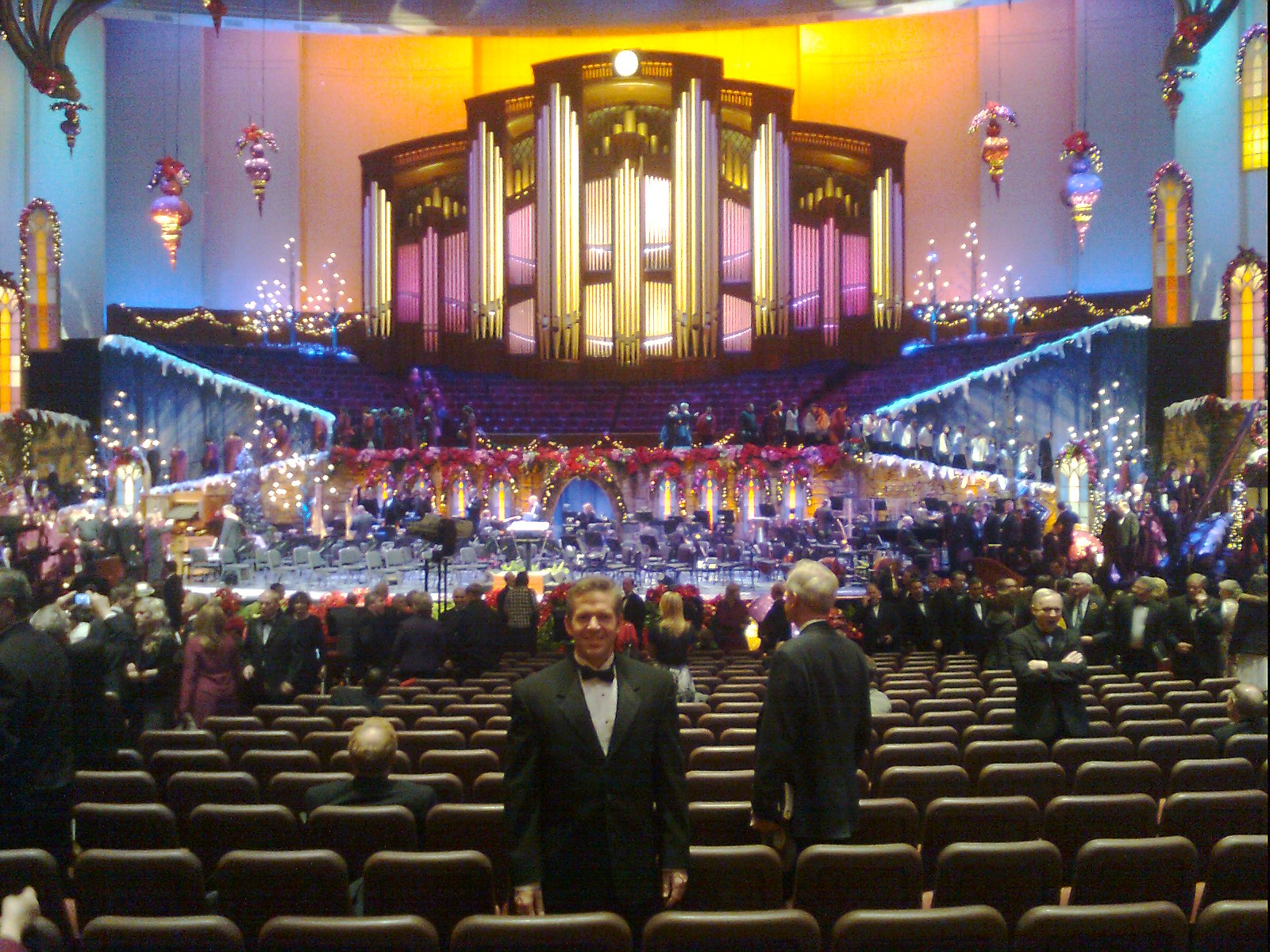
[Choir policy keeps members from posting or blogging about the Choir before and even during events. Here I am sharing only some very general information about the concert after it is over. Although I will respond to comments, I do not intend to speculate on policies, how guests are chosen, etc.] Perhaps the most important thing that the Tabernacle Choir does is provide music for several of the session of General Conference. After that, our biannual tours rank high as perhaps our most overt and perhaps important missionary outreach. While the weekly broadcasts of Music and the Spoken Word fill… Read More
-
•
•
13 responses
First, apologies for keeping you all waiting. The Choir’s Christmas concerts were last week, which was also the last week of BYU’s fall semester. This week I am in the midst of finals. And in the few moments I squeeze out, there are family Christmas preparations to make! I am a complete neophyte to the Blogosphere, having hardly read much of it and having never contributed outside of a single stint on the Mormon Theology Seminar. Still, when my friend Julie Smith approached me, I told her there were two times of the year that I would be interested in… Read More
-
•
•
6 responses
The inimitable ladies of Feminist Mormon Housewives are raising money for Heifer International again this year. This is a charity which buys cows (and ducks and chickens) for impoverished villagers in third-world countries; it’s hard to think of a better cause. If you’re able to pitch in, I encourage you to click over to FMH and help them become a blog full of 8 (or more!) cow women. Read More
-
•
•
98 responses
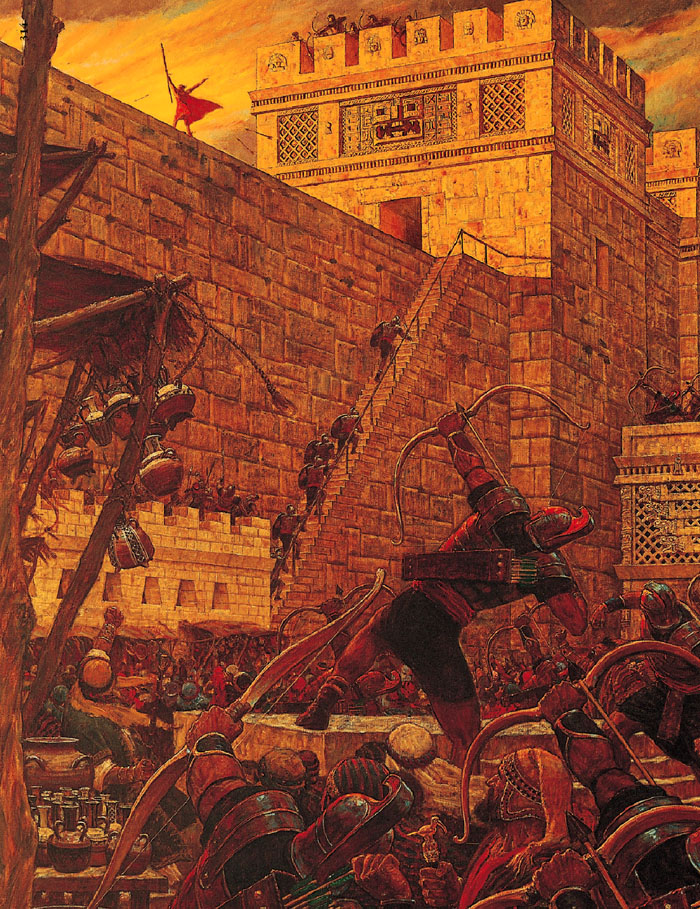
The news is out that LDS leaders are adding a fourth mission for the Church: caring for the poor and needy. According to an official LDS spokesman cited in the Salt Lake Tribune article, the new mission (or purpose or emphasis) will be included in the new edition of the Handbook of Instructions to be issued next year. With a publishing deadline looming, I propose that we put our collective heads together and see whether we need a fifth mission as well. Perhaps adding a fourth mission alone is not enough to fill in the gaps apparently missed by the… Read More
